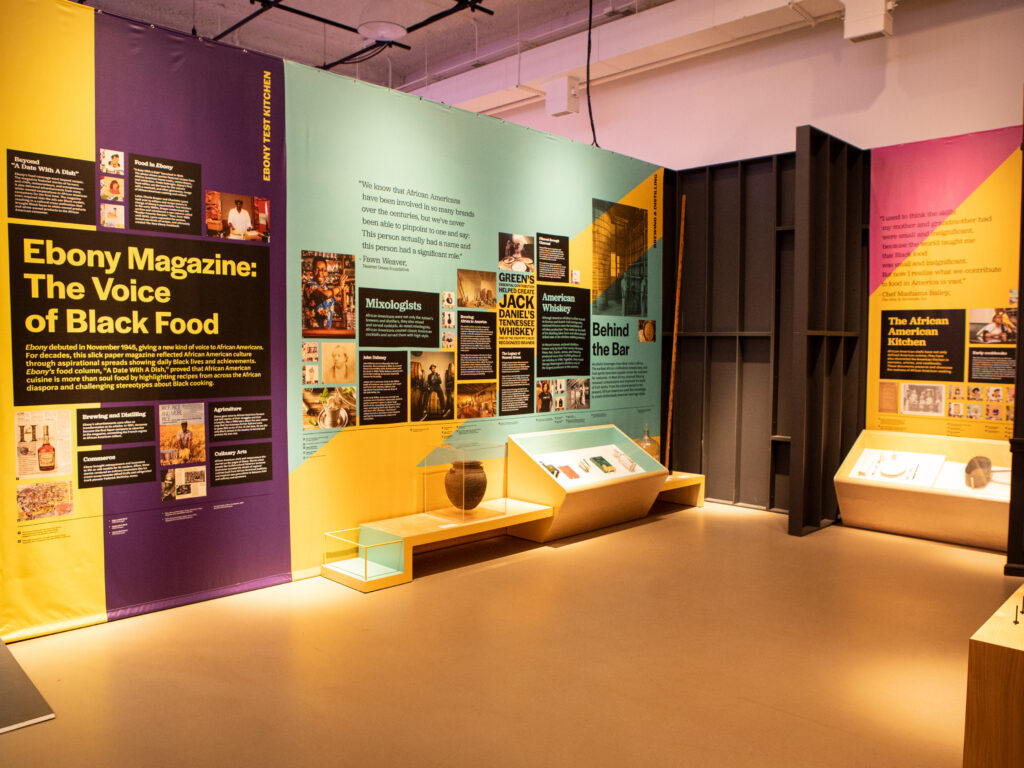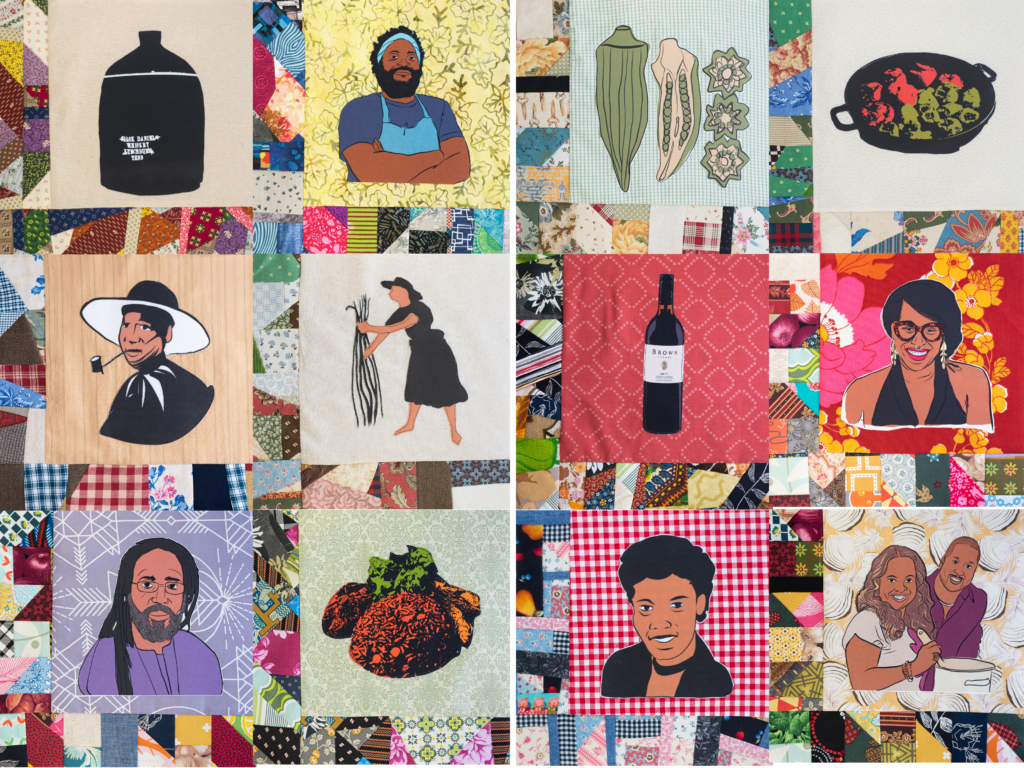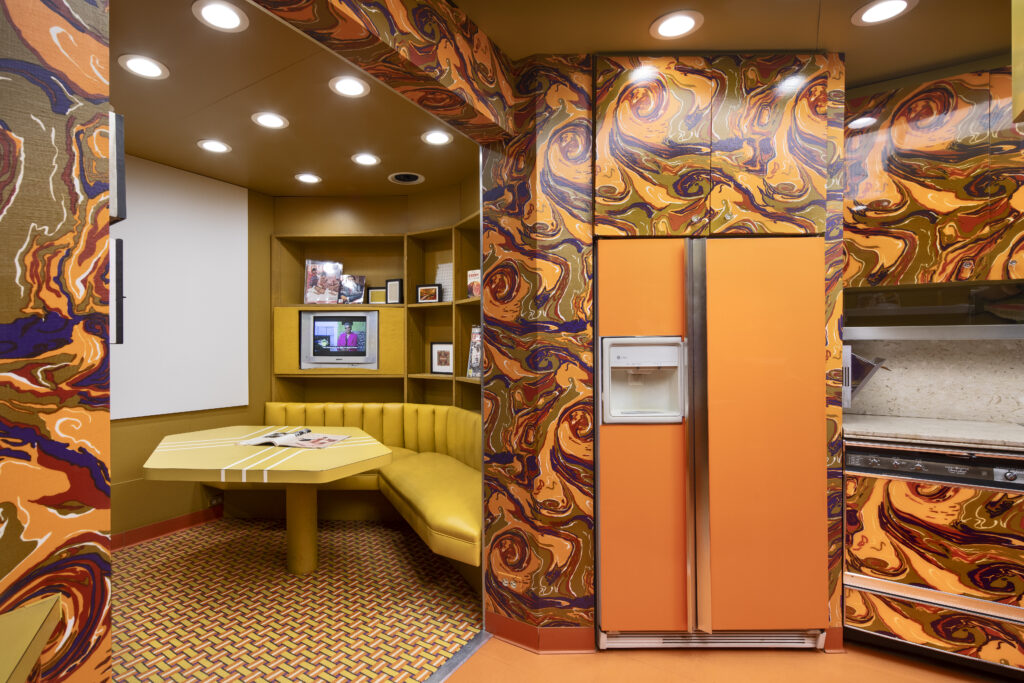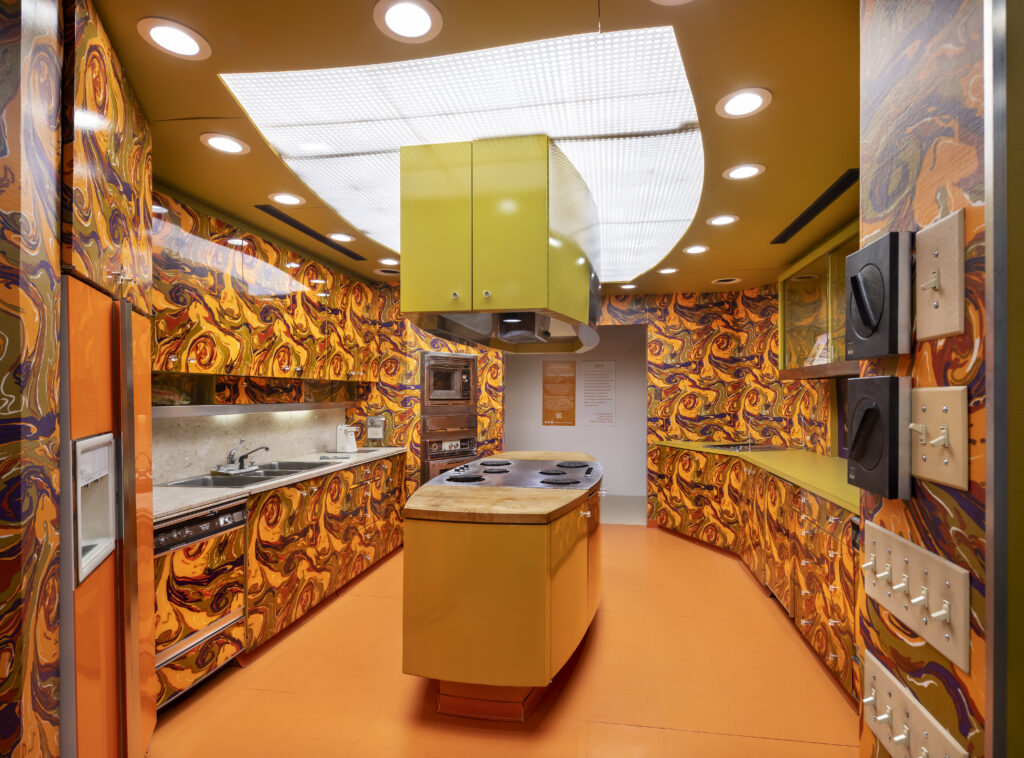A couple of weeks ago, I had the pleasure of viewing the Making the Nation’s Table, exhibition at the Africa Center in partnership with the Museum of Food and Drink (MOFAD) in East Harlem. I’d been wanting to make my way uptown and check it out since it first opened back in February, but never found the time.
I’m so glad that I finally made room for it on my calendar.
The exhibition was nothing short of amazing. As the first major exhibition celebrating African American contributions to our national culinary identity, it is an extraordinary and groundbreaking display.

Making the Nations Table exhibition hosted by the Africa Center in partnership with MOFAD. Photo by C
© Clay Williams
Curated by Dr. Jessica B. Harris, who is widely considered the world’s preeminent expert on the foods of the African diaspora, the exhibition features a variety of interactive and immersive experiences.
Upon entry, my eyes were immediately drawn to the sprawling (it stands 14 feet tall and nearly 28 feet wide) legacy quilt. Composed of 406 blocks sewn into a vast tapestry and representation of African American contributions to the fabric of American cuisine. The intricate patchwork is exquisite and the details are unmatched. I spotted several familiar faces such as beloved television personality and chef Carla Hall, New Orleans creole legend Leah Chase, New York Magazine food writer Nikita Richardson and countless other trailblazers worthy of praise and recognition in the culinary space.

Images of several blocks from the Legacy Quilt collaged together. Photo courtesy of Harlem Needle Arts and Adrian Franks.
The Legacy Quilt also includes an interactive, virtual experience whereby people can submit their own stories of African American culinary heroes to add—emphasizing that these culinary histories are not finite, that the work of documenting and celebrating them is ongoing.
Visitors are then carried through four centuries of influence on agriculture, culinary arts, brewing and distilling, and commerce. The movement of people—whether enslaved Africans across the Atlantic or over six million Black Americans from the South to the North during the Great Migration—and in turn, their food traditions across place and time, is a central theme of the exhibition.
Another highlight is a dynamic interactive feature that replicates a dinner table. It allows users to unlock stories of migration, movement, cultural evolution, and the feeling of sharing a meal with friends and family.
For me, the crowning jewel was the Ebony magazine Test Kitchen. It was like walking into a psychedelic wonderland. Outfitted in its original 1970s design, the test kitchen was up for demolition in 2018, but was thankfully saved and fully restored for this exhibition. The space was worthy of preservation due to its historical relevance in African American lives and our kitchens. It was the place where recipes were made and shared with countless Ebony readers every month.

The Ebony magazine test kitchen. Photo by Francis Dzikowski for MOFAD
Described by The Chicago Tribune as “the most distinctive test kitchen ever created,” it was the site where recipes from Ebony food editors—from oyster gumbo to sweet potato pudding—came together for the iconic “A Date With A Dish” column. The multi-sensory experience also features a soul-stirring soundtrack curated by musician, farmer, and chef Kelis, and video interviews with former Ebony food editors.

Ebony magazine test kitchen. Photo by Francis Dzikowski
Simply put, the magazine played a tremendous role in expanding people’s perceptions of African American cuisine.
From farmers to mixologists, the exhibition puts the spotlight on individual’s stories as it emphasizes and underscores the fact that African American food is American food. If you’re in the NYC area, please check it out before it closes on Juneteenth (June 19, 2022).
The Africa Center is located, 1280 5th Ave, New York, NY 10029.
For tickets and more information, please visit MOFAD.
What is your favorite dish to make for your family?




The Africa Center!! I love the sound of that and the pictures are beautiful!! Time to plan another trip to NY! Thanks for sharing!
That’s great! I want to visit it the next time I’m in NYC.